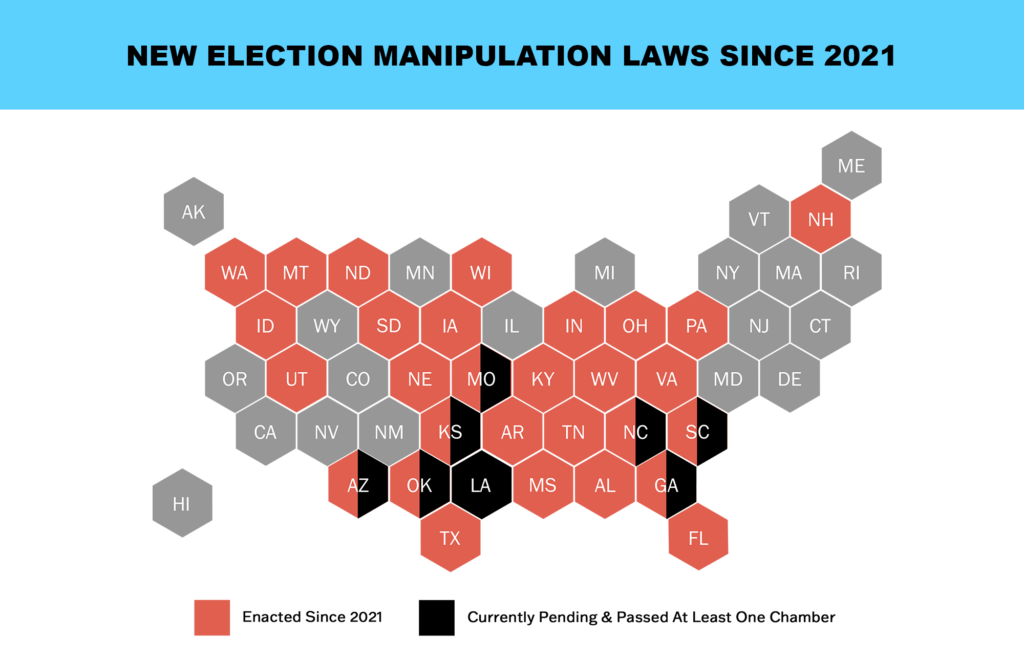How State Legislatures Are Refining Their Efforts to Manipulate Elections
Since the 2020 election, Voting Rights Lab has tracked over 6,300 pieces of election legislation, including over 600 bills and resolutions that have become law across all 50 states and D.C. We watched legislatures move in opposite directions on some issues – such as vote by mail. States expanded ballot access in a nearly uniform fashion on other issues like in-person early voting. Some states also moved forward full throttle on a concerning new area of legislation: election manipulation, or election interference legislation.
Our newest report — “The Shapeshifting Threat of Election Interference” examines how election interference legislation has changed over the past three years. We look closely at what these changes could mean for the 2024 election – particularly in Georgia and North Carolina, two states that experts consider among those most likely to determine the results of the election.
Our research shows the story around election legislation is both brighter and darker than it may at first appear.
On the one hand, significantly more legislation has been enacted that makes our elections stronger than legislation that restricts access or impedes election administration. For millions of voters across the country, this will be the most accessible election they have ever experienced. Furthermore, following tremendous bipartisan opposition, the volume of election interference legislation under consideration declined steeply in 2023 after peaking in 2022.
However, despite election manipulation legislation appearing to be on the decline, it remains a very real threat to the 2024 election.
Voting Rights Lab has tracked 79 new laws containing election interference provisions that have been enacted in 29 states since 2021 – and 2024 will be the first test of those laws in a presidential election. Similar legislation is active and has passed at least one chamber in eight states.

Don’t have time to read the full report? Here are three key takeaways:
- As a new area of election law, election manipulation legislation is constantly changing.
- 79 new election interference laws will be put to the test for the first time in a presidential election this November.
- Georgia and North Carolina – two of the states likely to determine the results of the presidential election this November – have been at the forefront of new election manipulation laws.
Like this report, and want to help make more of them happen? Make a tax-deductible contribution to Voting Rights Lab.